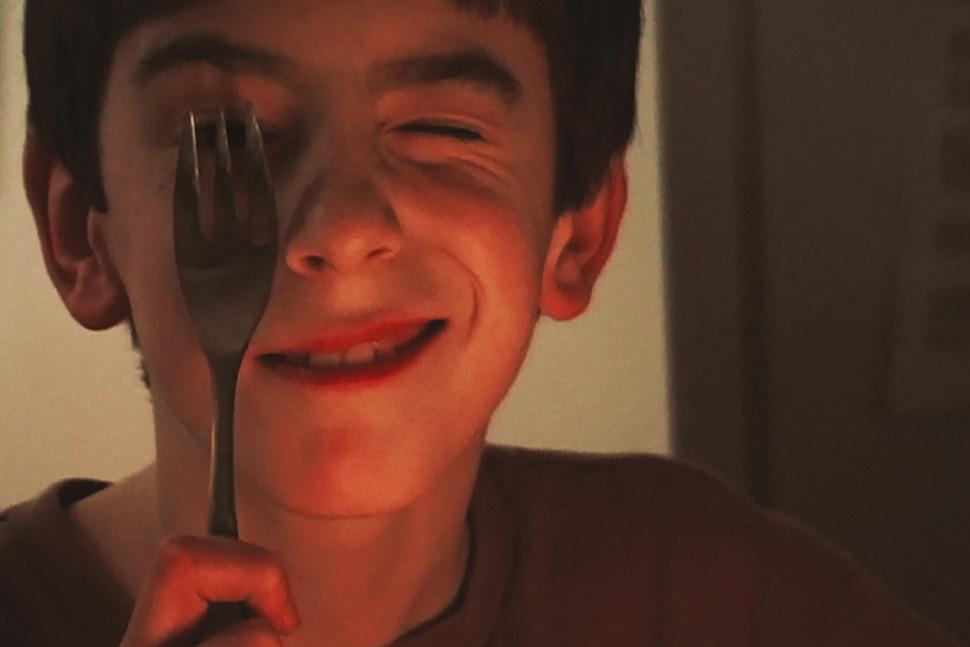Venice had a remarkable non-fiction portion of its 2025 program, including new films by Werner Herzog and Laura Poitras (both covered here). The programmers for Venice don’t fall for generic documentaries shaped by anecdotes told by talking heads, leaning instead on the projects that say as much about their creators as their subjects. Ross McElwee, Lucrecia Martel, and Alexandre O. Philippe use their backgrounds, interests, and even their flaws to tell their newest stories, and all of them are worth a look. One will even break your heart.
Ross McElwee has long put himself at the center of his films, whether it’s his search for romance in his breakthrough “Sherman’s March” or a chronicle of his complex father/son relationship in “Photographic Memory.” With his masterful “Remake,” McElwee documents a formative chapter in his life, when he was working on an adaptation of “March” into a narrative feature (and later a TV series), all of it shaped by the death of his son, Adrian. A filmmaker for his entire life, Ross has hundreds of hours of footage of Adrian over the course of his existence, some of them seemingly recorded whether Adrian liked it or not. McElwee doesn’t just tell the story of his son’s troubles with addiction and depression; he questions if he did enough and even the role the camera (and the associated fame at places like the Venice Film Festival) played in the story.
As someone who recently turned 50 with three sons headed into high school and college, “Remake” struck a powerful emotional chord. I could see my boys in the young Adrian and questioned how I would even go on if something happened to one of my kids, much less make a movie about it. There’s courage in “Remake,” and something that ultimately feels like an act of self-preservation. Ross McElwee needed to make this movie to process what happened to him and Adrian. However, he doesn’t push for over-explanation, other than arguably in his anger at the drug crisis gripping this nation.
Most of the time, he sounds wistful, uncertain, and almost fumbling through what he wants to express. That aspect actually gives “Remake” so much of its power because it makes it feel more personal. In a sense, it’s like a eulogy, something that gains more power through its emotional pauses even if its grammar isn’t perfect. At times, he speaks not about Adrian but to him, using “you” as if his son can hear him. I hope he can.
There’s also a haunted atmosphere in Lucrecia Martel’s “Nuestra Tierra,” also known as “Landmarks” and “Chocobar” over the several years it has been in production. This project by the director of the transcendent “Zama” has been her obsession for some time, as she spent years researching and shaping a story that is part courtroom drama, part historical study, and part commentary on colonization. Reportedly once much longer, one can see the difficulty that Martel had in finding precisely the right story here, especially in a second hour that could be called meandering. Still, the filmmaking is undeniably powerful, graceful, and moving, a reminder of her remarkable skill set as a creator.
The Chuchagasta community in northwest Argentina is an indigenous population that has been diminished and destroyed over generations. In 2009, a leader of this community named Javier Chocobar was shot while trying to keep a local landowner and two former police officers off the land. There’s video footage of the incident, and a large section of “Nuestra Tierra” recreates that fateful day. It took almost a decade for the men accused of this crime to go on trial, and testimony about what happened on that fateful day makes up the bulk of Martel’s film, itself a fascinating study in filmmaking, given that the footage that inspired her to make this movie in the first place is debated. Does the camera tell the whole story?
Martel pivots in the second half of the film to tell more stories of the history, people, and land at the center of the case. She loves to get a drone above this gorgeous patch of land, slowly moving over and across it to capture its remote beauty. At times, it feels like Martel is trying to tell too many stories at once, giving the film the air of something that might have worked better on television or longer form. On the one hand, this is a story of bureaucracy, corruption, and murder; on the other hand, it is also a story of people being erased from history, an attempt to reclaim their story before it is forgotten.
There’s also a sense of telling a story while we can still hear it in Alexandre O. Philippe’s “Kim Novak’s Vertigo,” a movie that feels like an act of love from the director of “78/52” and “Lynch/Oz.” The man who has spent so many years dissecting process moves from directors to one of the most iconic performers who ever lived, using “Vertigo” as the centerpiece of Novak’s life, arguably slighting what came before and after it, but really just allowing a private, accomplished woman to discuss her craft in a manner that other filmmakers would never allow.
Philippe films Novak with incredible grace and respect, allowing her to talk about her process of “reacting” instead of “acting” and the choices she made during “Vertigo.” The title is not accidental, and there’s something fascinating about watching a filmmaker who has focused so much on directors embrace the acting process too, especially in the context of a filmmaker who often gets all the credit for his works. “Vertigo” was Kim Novak’s, too. Don’t forget it.
Source link
